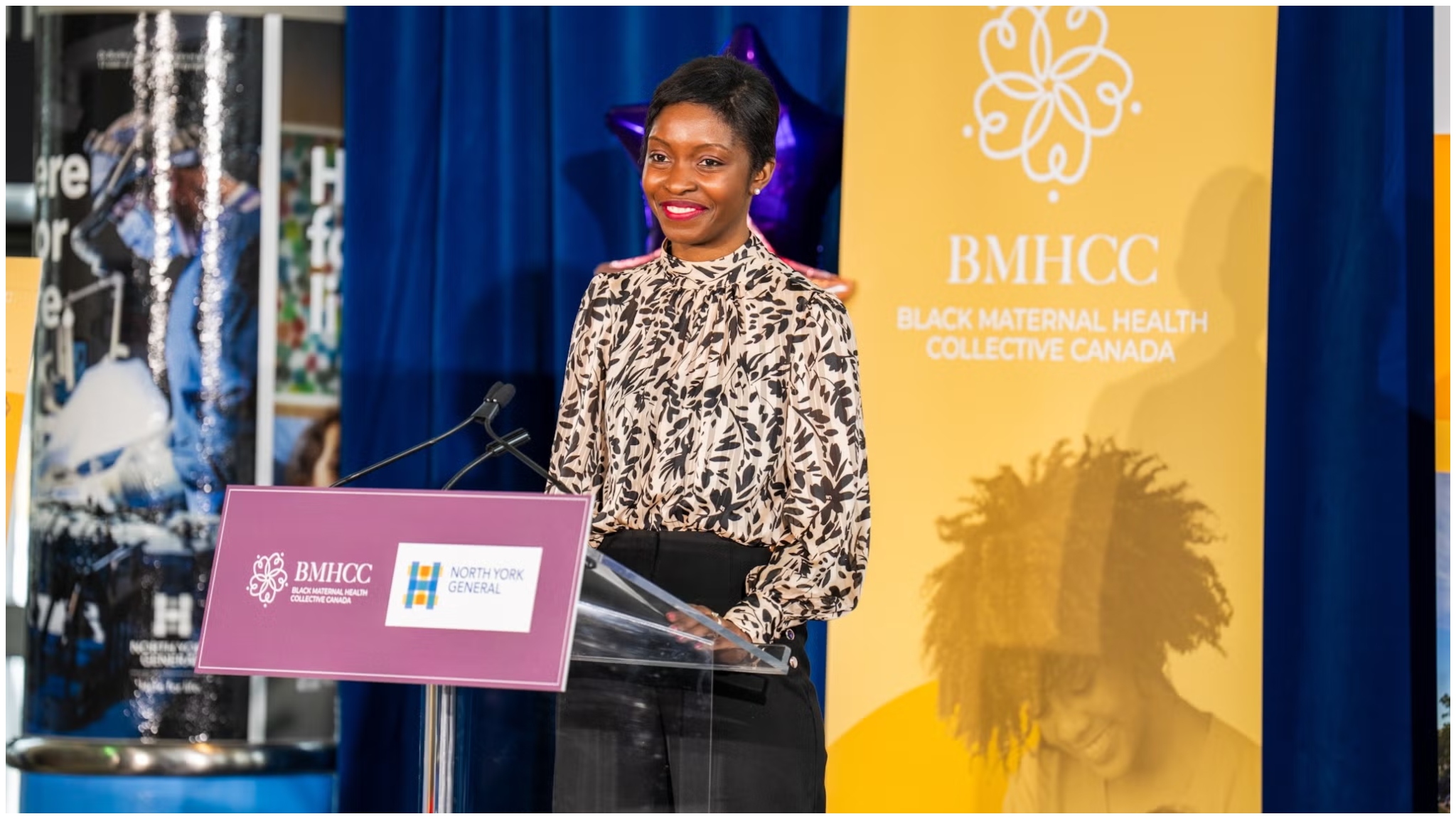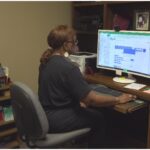A Landmark Moment Rooted in Personal Tragedy
Toronto’s CN Tower lit up in purple, gold, and green on April 13 to mark a powerful first: the start of Toronto’s Black Maternal Health Week. At the heart of this historic moment is Jenelle Ambrose Dash, a lawyer and maternal health advocate. For her, the light show wasn’t just a celebration—it was a tribute to her daughter, Maya, lost to pre-eclampsia in 2023.
Dash’s pregnancy seemed normal until she began experiencing symptoms. Her concerns were brushed off because she didn’t show “typical” signs of pre-eclampsia. “I had maybe minor swelling,” she said. “But it wasn’t seen as serious enough.” Sadly, her daughter didn’t survive. That loss lit a fire in her—a mission to ensure that no other Black mother would suffer in silence.
The Launch of Black Maternal Health Week in Toronto
Now in 2025, Dash’s grief has become a national call to action. She launched the inaugural Toronto Black Maternal Health Week through her organization, the Black Maternal Health Collective Canada. The week runs from April 11 to 17, under the theme “Amplifying Our Voices.”
The week includes medical panels, community baby showers, birth justice workshops, and exhibitions at hospitals like North York General. Partner organizations include Black Physicians of Canada and Mino Care. Dash insists it’s not just about her story. “This week was built by Black women, for Black women,” she said.
Confronting Canada’s “Colorblind” Healthcare
While the U.S. is having major conversations about Black maternal health, Canada has barely scratched the surface. One big reason? Lack of race-based health data. “The system isn’t built for us,” Dash explains, “and we can’t even prove that with data.”
A study from McGill University shows that Black women in Canada face an 8.9% preterm birth rate, compared to 5.9% for white women. These early births are a major cause of death in children under five. Still, without data to back up these disparities, advocacy becomes a heavier lift.
Why “Colorblind” Care Is Dangerous
Dash is challenging the idea that healthcare should be “colorblind.” While it may sound fair, ignoring race often leads to deadly results. “I’m not saying Blackness is a risk factor,” she explains. “I’m saying ignoring difference is a risk factor.”
She’s calling for care that recognizes cultural context, listens to lived experiences, and doesn’t rely solely on standard protocols. “Let’s take off the colorblind approach,” she says. “Especially in the Canadian context.”
Turning Pain Into Purpose
Dash’s twin sister, Adele Ambrose, is also a lawyer and helps lead the movement. For her, the work is deeply personal. “I almost lost my sister,” she says. “So whatever she decided to do, I promised I’d support her.”
Both sisters say their Antiguan heritage fuels their strength. “We are the daughters of the West Indies,” Dash says. “I think of my grandmother, who lost children but kept going. That’s the legacy we honor.”
Despite being private people, they’ve opened up about their grief. “We want to normalize talking about pregnancy loss,” Adele says. “There’s healing in being honest.”
Building a National and Global Movement
Toronto’s week is only the beginning. Dash envisions Black Maternal Health Week going national—and possibly international. She hopes to collaborate with U.S. partners like the Black Mamas Matter Alliance to exchange ideas and solutions.
“We want this to spread across Canada,” Dash says. “We want to learn from others and share what’s working here. More dialogue makes us stronger.”
The hope is that this becomes more than an annual event. Dash wants policy changes, better training for healthcare providers, and real investment in race-based data collection.
Hope, Healing, and Legacy
For women who’ve suffered loss, Dash offers a message of hope: “Find meaning in the pain. Your story matters.” She doesn’t expect everyone to launch a national movement—but she wants them to know they’re not alone.
“I want Maya’s life to have meaning,” she says. “Even in loss, we can build something beautiful.”
Her sister agrees. “If this gives someone who’s lost a child the courage to keep going, it’s all worth it,” Adele says.
The message is clear: culturally competent care isn’t a luxury. It’s life-saving. And this movement, started by one grieving mother, is holding space for every Black woman who deserves to be heard, respected, and protected.





